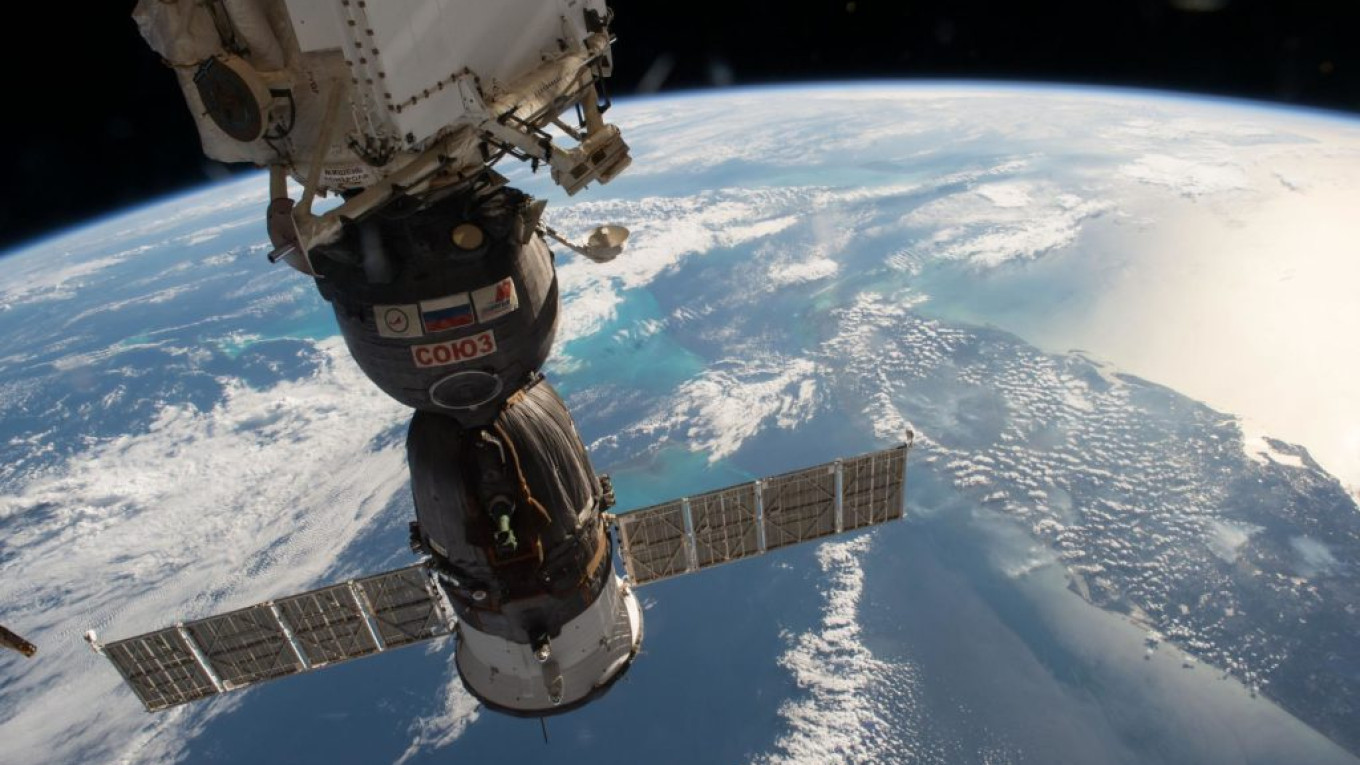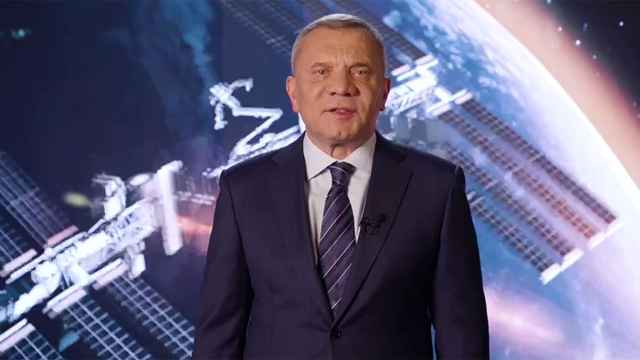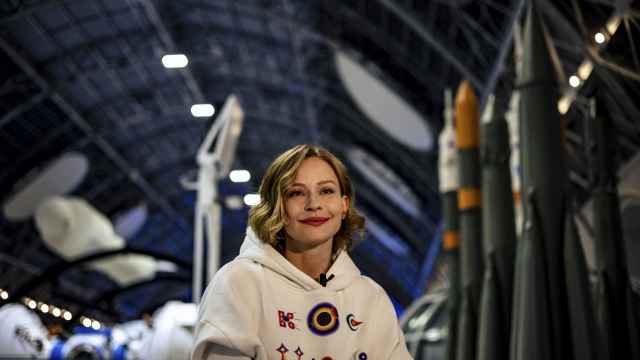Updates with temperature rise.
The temperature in the Soyuz capsule docked with the International Space Station has risen since the detection of a coolant leak on Thursday, but the crew was not in danger, the Russian space agency Roscosmos said on Friday.
Roscosmos and U.S. space agency NASA said on Thursday that a coolant leak had been detected on the Soyuz MS-22 spacecraft, forcing the last-minute cancellation of a spacewalk by two Russian cosmonauts on Wednesday.
Roscosmos said that a number of tests had been conducted on Soyuz on Friday, and the temperature in the capsule had increased to 30 degrees Celsius.
"This is a slight change in temperature," the space agency said in a statement.
The development was for now "not critical" for the operation of the equipment and the comfort of the crew, Roscosmos said.
The coolant leak could potentially affect a return flight to Earth by three crew members.
"The crew members aboard the space station are safe, and were not in any danger during the leak," NASA said, adding that its ground teams were evaluating "potential impacts to the integrity of the Soyuz spacecraft."
"NASA and Roscosmos will continue to work together to determine the next course of action," NASA said.
The TASS news agency quoted Sergei Krikalev, a former cosmonaut who heads the crewed space flight program for Roscosmos, as saying that the leak may have been caused by a tiny meteorite striking Soyuz MS-22.
"The cause of the leak may be a micrometeorite entering the radiator," TASS quoted Krikalev as saying. "Possible consequences are changes in the temperature regime."
"No other changes in the telemetric parameters of either the Soyuz spacecraft or the [ISS] on the Russian or American segments have been detected," Krikalev said.
Coolant pressure drop
NASA later added that the crew on the station "completed normal operations Thursday, including... configuring tools ahead of a planned U.S. spacewalk on Monday."
Soyuz MS-22 flew Russian cosmonauts Sergei Prokopyev and Dmitry Petelin and NASA astronaut Frank Rubio to the ISS in September.
It is scheduled to bring them back to Earth in March and another vessel would have to be sent to the ISS if Soyuz MS-22 is unavailable.
Prokopyev and Petelin had been making preparations for a spacewalk on Wednesday when the leak was discovered.
"The crew reported the warning device of the ship's diagnostic system went off, indicating a pressure drop in the cooling system," Roscosmos said. "At the moment, all systems of the ISS and the ship are operating normally, the crew is safe."
NASA said the leak had occurred on the "aft end" of Soyuz MS-22, which is secured to the space station.
There are currently four other astronauts and cosmonauts aboard the space station in addition to Rubio, Prokopyev and Petelin.
NASA astronauts Josh Cassada and Nicole Mann, Japanese astronaut Koichi Wakata and Russian cosmonaut Anna Kikina were flown to the ISS in October aboard a SpaceX spacecraft.
Space has been a rare avenue of cooperation between Moscow and Washington since the start of Moscow's assault on Ukraine in February shredded ties between the two countries.
The ISS was launched in 1998 at a time of increased U.S.-Russia cooperation following their Space Race competition during the Cold War.
A Message from The Moscow Times:
Dear readers,
We are facing unprecedented challenges. Russia's Prosecutor General's Office has designated The Moscow Times as an "undesirable" organization, criminalizing our work and putting our staff at risk of prosecution. This follows our earlier unjust labeling as a "foreign agent."
These actions are direct attempts to silence independent journalism in Russia. The authorities claim our work "discredits the decisions of the Russian leadership." We see things differently: we strive to provide accurate, unbiased reporting on Russia.
We, the journalists of The Moscow Times, refuse to be silenced. But to continue our work, we need your help.
Your support, no matter how small, makes a world of difference. If you can, please support us monthly starting from just $2. It's quick to set up, and every contribution makes a significant impact.
By supporting The Moscow Times, you're defending open, independent journalism in the face of repression. Thank you for standing with us.
Remind me later.






